Moneyocracy is a french film of genre Documentary
Moneyocracy (2012)

If you like this film, let us know!
- Infos
- Casting
- Technical infos
- Photos
- Videos
- Film quotes
- Characters
- Music
- Awards
Moneyocracy is a 2012 documentary film about Citizens United v. Federal Election Commission, 558 U.S. 310 (2010),which was a landmark United States Supreme Court case in which the Court held that the First Amendment prohibited the government from restricting independent political expenditures by corporations and unions. The film explores how the Citizens United v. Federal Election Commission decision has dramatically changed the U.S Campaign Finance Laws and lead to the most expensive Elections in the United States. The film describes the systemic corruption of the United States democracy and the consequences of that systemic corruption on the U.S democracy and the electorate.
Synopsis
The 2012 Presidential election was the most costly ever in U.S. history. More than $6 billion have been spent by the Campaigns and independent groups to get their candidate elected.Comments
Leave comment :
Suggestions of similar film to Moneyocracy
There are 8968 with the same cinematographic genres, 8199 films with the same themes (including 515 films with the same 3 themes than Moneyocracy), to have finally 70 suggestions of similar films.If you liked Moneyocracy, you will probably like those similar films :
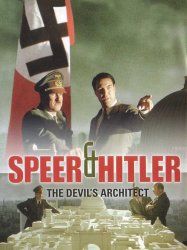
Speer and Hitler (2005)
, 4h30Genres Drama, War, Biography, Documentary, Historical
Themes Documentary films about war, Documentary films about historical events, Documentary films about politics, Political films, Documentary films about World War II
Actors Sebastien Koch, Tobias Moretti, Dagmar Manzel, André Hennicke, Michael Gwisdek, Wilfried Hochholdinger
Rating74%





Une réévaluation du rôle joué par Albert Speer dans le Troisième Reich. Speer, qui a finalement été condamné aux procès de Nuremberg et a purgé une peine de 20 ans de prison, était connu pour avoir conçu de nombreux bâtiments du Troisième Reich et pour avoir été le ministre de la production de guerre d'Hitler.
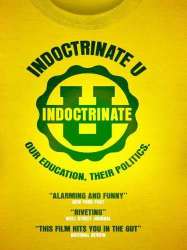
Indoctrinate U (2007)
, 2hDirected by Evan Coyne Maloney
Origin USA
Genres Documentary
Themes Films about education, Documentary films about historical events, Documentary films about politics, Political films, Films about language and translation
Actors Evan Coyne Maloney
Rating69%





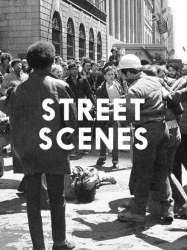
Street Scenes (1970)
, 1h15Directed by Martin Scorsese
Genres Documentary
Themes Documentary films about war, Documentary films about historical events, Documentary films about politics, Political films
Actors Harvey Keitel, Verna Bloom, Jay Cocks, Martin Scorsese
Rating65%





 , 1h
, 1hOrigin United-kingdom
Genres Documentary
Themes Films set in Africa, Films about religion, Documentary films about law, Documentary films about war, Documentary films about historical events, Documentaire sur une personnalité, Documentary films about politics, Documentary films about religion, Political films, Films about Jews and Judaism
Actors Louis Theroux
Rating72%






Malcolm X (1972)
, 1h31Directed by Arnold Perl
Origin USA
Genres Drama, Documentary
Themes Films about racism, Documentary films about racism, Documentary films about law, Documentary films about historical events, Documentaire sur une personnalité, Documentary films about politics, Political films
Actors James Earl Jones, Ossie Davis
Rating74%






Barricades (1969)
, 1h5Directed by Ram Loevy
Origin Israel
Genres Documentary
Themes Films set in Africa, Films about religion, Documentary films about law, Documentary films about war, Documentary films about historical events, Documentaire sur une personnalité, Documentary films about politics, Documentary films about religion, Political films, Films about Jews and Judaism
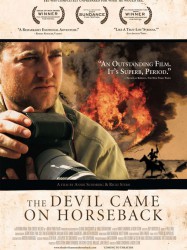
The Devil Came on Horseback (2007)
, 1h25Origin USA
Genres Documentary
Themes Films set in Africa, Documentary films about law, Documentary films about war, Documentary films about historical events, Documentaire sur une personnalité, Documentary films about politics, Political films
Rating76%





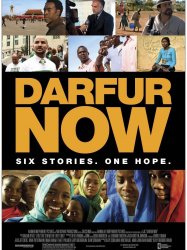
Darfur Now (2007)
, 1h38Directed by Ted Braun
Origin USA
Genres Documentary, Crime
Themes Films set in Africa, Films about immigration, Documentary films about law, Documentary films about war, Documentary films about historical events, Documentaire sur une personnalité, Documentary films about politics, Political films
Actors Don Cheadle, George Clooney, Arnold Schwarzenegger
Rating66%





 , 3h5
, 3h5Directed by Sidney Lumet, Joseph L. Mankiewicz
Origin USA
Genres Documentary
Themes Films about racism, Documentary films about racism, Documentary films about law, Documentary films about historical events, Documentaire sur une personnalité, Documentary films about politics, Political films
Actors Paul Newman, Ruby Dee, Joanne Woodward, James Earl Jones, Clarence Williams III, Burt Lancaster
Rating81%





Film biographique sur Martin Luther King Jr..
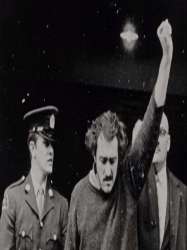 , 58minutes
, 58minutesDirected by Robin Spry
Origin Canada
Genres Documentary
Themes Films about terrorism, Documentary films about law, Documentary films about war, Documentary films about historical events, Documentary films about politics, Documentary films about terrorism, Documentary films about cities, Political films, Documentary films about Quebec politics
 Connection
Connection